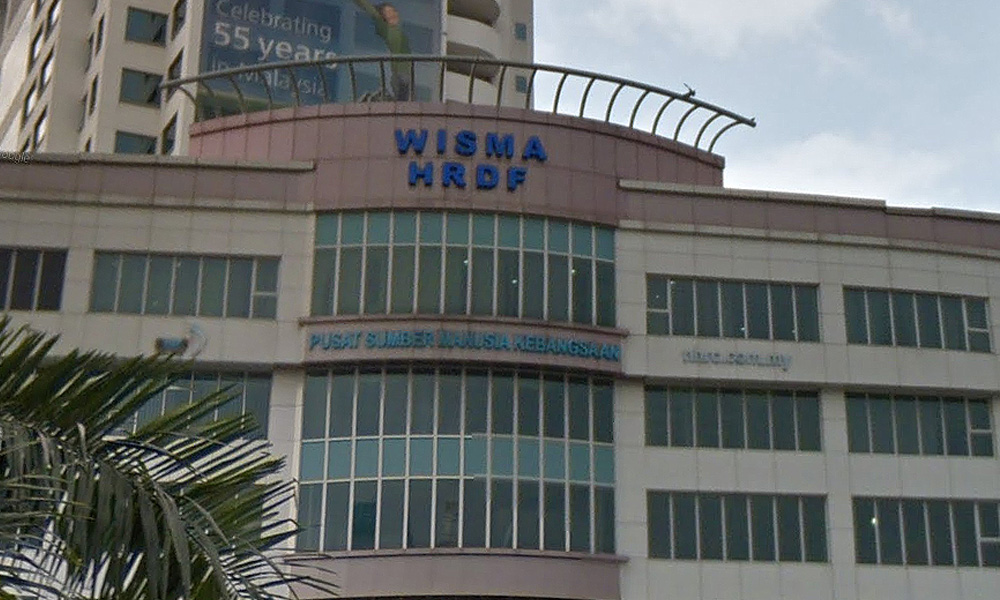
High-quality human capital is crucial in empowering our nation to sustain its competitive advantage in the long term. It impacts employees’ productivity, organisational productivity, and consequently the nation’s economy.
In this regard, Pembangunan Sumber Manusia Berhad (PSMB), which administers the Human Resources Development Fund (HRDF), plays a crucial role in promoting the training and development of employees, apprentices and trainees by ensuring a pool of competent and high-quality trainers to meet the human capital development needs of the nation.
One of PSMB’s core values is “continuous improvement” and it is in this spirit that I have endeavoured to suggest without fear or favour ways and means by which PSMB could enhance its effectiveness and attain its vision and mission.
I hope and pray that both our new Human Resources Minister M Saravanan and the chairman of PSMB’s Board of Directors Nelson Renganathan will do the needful to set things right.
Among the key issues that PSMB should address is the Training Providers’ Circular No 4/2019 pertaining to HRDF Trainers’ Development Framework (TDF) that was issued by PSMB and has been effective from Jan 1, 2020.
This initiative, according to PSMB, is “designed to safeguard the quality of training conducted under the various HRDF schemes”. The circular also rightfully states that “the success of training depends on the ability of trainers to design and deliver their content effectively”.
Unfortunately, the TDF (Accreditation by Activity) whereby trainers need to conduct an accumulated 120 hours of training within 12 months to become a HRDF accredited trainer lacks validity: it does not measure what it is supposed to measure.
Specifically, it does not measure the quality of training (instructional design, content mastery, instructional competence, and successful transfer of knowledge and skills to learners) conducted by trainers. It merely tracks the number of training hours with trainers required to submit documentary proof which may consist of completed attendance sheet with contact details of participants; contact details of the clients; letter of award from the client; and invoice to the client.
The stated documentary proof does not measure in any way the competence of trainers or quality of training. Worse still, it may also violate the Personal Data Protection Act 2010.
Regrettably, it does appear that PSMB does not seem to learn from its past mistakes. In 2016, PSMB introduced the Star Rating System about PSMB’s registered trainers and training providers.
It similarly lacked validity and I had highlighted this fact during a Town Hall Meeting with the former minister of human resources on June 7, 2018. Fortunately, the Star Rating System was subsequently withdrawn effective Feb 20, 2019.
Another area of concern is whether PSMB’s personnel or the HRDF Train-The-Trainer (TTT) Course’s Lead Trainers have adequate expertise to undertake the Accreditation by Assessment method.
I hold PSMB’s current head of training market in high esteem as he is a highly dedicated and diligent individual. However, he needs to have a highly competent team to ensure that the trainers registered with PSMB are skilled training professionals.
Undoubtedly, there is a fair number of competent trainers in the industry. But the question is whether PSMB has mobilised the right and required number of trainers to assist it effectively. I have my doubts based on my interactions with trainers during the HRDF Trainers’ Competency Workshop organised in 2018.
Interestingly, a leading local institute of management in proudly advertising its HRDF Certified TTT programme on its website has the following faulty learning outcomes: “Identify the characteristics of a competent trainer” and “Understand adult learning principles and apply the knowledge in delivering training effectively to adults”.
If one cannot get the basics of training right, how can one teach others to enhance their training competence?
What is perhaps most shocking is that about 30 percent of the recent Written Instructional Material (WIM) for HRDF’s TTT Course is plagiarised – an intellectual crime. Paragraphs after paragraphs have been reproduced verbatim without acknowledging the sources. Additionally, a substantial portion of the materials is not only outdated but riddled with factual inaccuracies, grammatical errors and typographical mistakes.
On Jan 6, 2020, I had a meeting in Wisma HRDF with members of the TDF Committee in the presence of HRDF officers wherein I gave my frank views on the proposed HRDF Trainers’ Development Framework (TDF).

In that meeting, I inquired how many members of the stated committee had an opportunity to read and review the WIM. Not a single member acknowledged having done so. They were stunned when I highlighted the blatant plagiarism; the term “trainer” itself being wrongly defined, and virtually all the questions at the end of each module being lower-order thinking questions which any trained parrot should be able to answer.
Examples of such questions are “Define learning and training”, “What is the definition of ethics?”, and “What is Learning Style Inventory (LSI)?”
For the record, I shared my concerns about the plagiarised and poor quality of HRDF’s TTT WIM and the implementation of HRDF Trainers’ Development Framework with PSMB’s top management. But they seem to have fallen on deaf ears. I was told in no uncertain terms “not to rock the boat”.
This response will only lead one to believe that mediocrity is condoned by those appointed to oversee the quality and standards of the training profession in our country.
Hence, I have decided to go public with this letter because the quality of our nation’s human capital greatly depends on the quality of our trainers. Quality trainers deliver quality training. Quality training empowers employees to enhance their productivity which consequently enhances organisational and national productivity.
In short, we need to significantly raise the bar of the quality of our workplace training if we wish to enhance our employees’ productivity and build a competitive, world-class workforce.
In this regard, I would like to make the following recommendations aimed at enhancing PSMB’s effectiveness in promoting quality training in the workplace. First, PSMB should establish a council of trainers and human resource practitioners comprising those who are genuine and respected experts in workplace training and development.
All initiatives related to upgrading the competence of trainers and quality of workplace training should be reviewed by this council and not committees comprising senior officials of training associations who often lack the required expertise and time to perform well, as proven in the past.
Second, PSMB should hire adequate personnel with expertise in the area of workplace training and development to ensure the effectiveness of its role in upgrading the quality of trainers registered with PSMB.
Finally, PSMB should hire experts to prepare TTT content and train the lead trainers to deliver it effectively. - Mkini



No comments:
Post a Comment
Note: Only a member of this blog may post a comment.